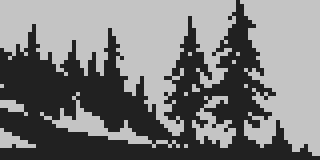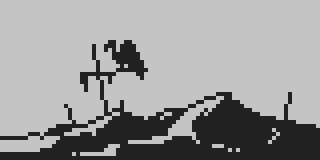EXPLORATION

A key element to most adventure and RPG games is exploration. Now exploration doesn't just have to mean traversing large distances. Exploration could take place within a single room. The beauty of storytelling RPGs is anything is possible, large or small. A character may have to survive an expansive labyrinth filled with unknown creatures and traps but could just as well inspect a cabinet for hidden clues regarding the haunted manor they are presently trapped in.

TURNS AND ROUNDS
The flow of a normal campaign has every player taking one turn to perform the desired actions. One round of play is comprised of each player completing their turn. The order of turns is decided by the group. If everyone is in a circle, a good order might be start to the left or right of the GM and go around until everyone has gone once then begin the next round.
ACTIONS

Some actions may require the player to succeed at a dice roll in order to perform. When this happens, the GM will ask the player to roll a d20 and add a related attribute to the result. If the total of the roll and attribute is above a certain threshold, the character will perform the action successfully. The further from the threshold the player rolls, the more severe the outcome of their action will be.
- MOVEMENT ACTION
- Movement involves any kind of movement such as walking, running and anything in between.
- Acts such as climbing or swimming are also designates as movement but may require other attributes for success as well.
- MAIN ACTION
- An action where the character is doing something physical other than moving like opening a door, equipping a weapon or attacking.
- NEUTRAL ACTION
- These actions involve things like making a gesture or speaking.

ROLLING 20 OR 1
Weather a character is in battle or just exploring, rolling a 20 or a 1 on a d20 roll denotes a critical success or critical failure. If the player rolls a 20, their action succeeds to the fullest extent regardless of what they were attempting. If a player rolls a 1, the opposite happens; they fail to the worst effect. It is up to the GM to decide precisely what happens in either instance but in any case, rolling a 20 or a 1 will yield extreme results.

MOVEMENT
Outside of combat, a party can generally explore freely with out limitations. However, once combat is initiated, it is important to keep track of how far a character is able to move each turn. During combat, characters can cover a total of about 10 meters if moving at full speed. Once this max distance is reached, they will need to wait until their next turn to move any further.

TERRAIN

 |

